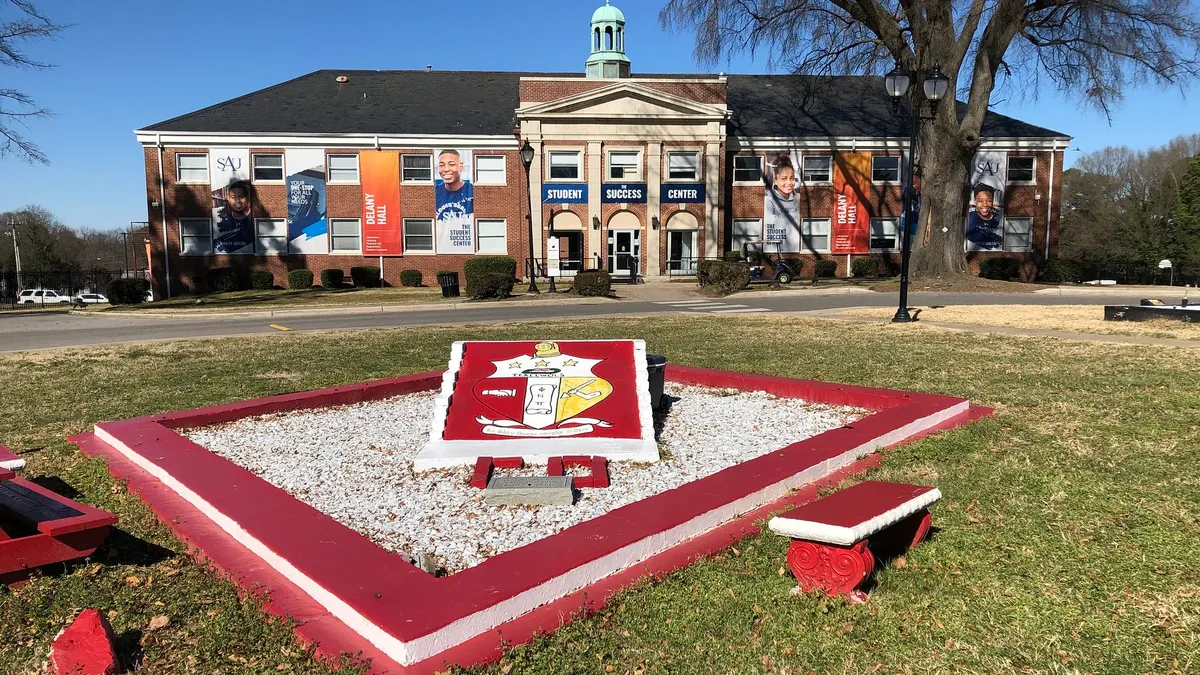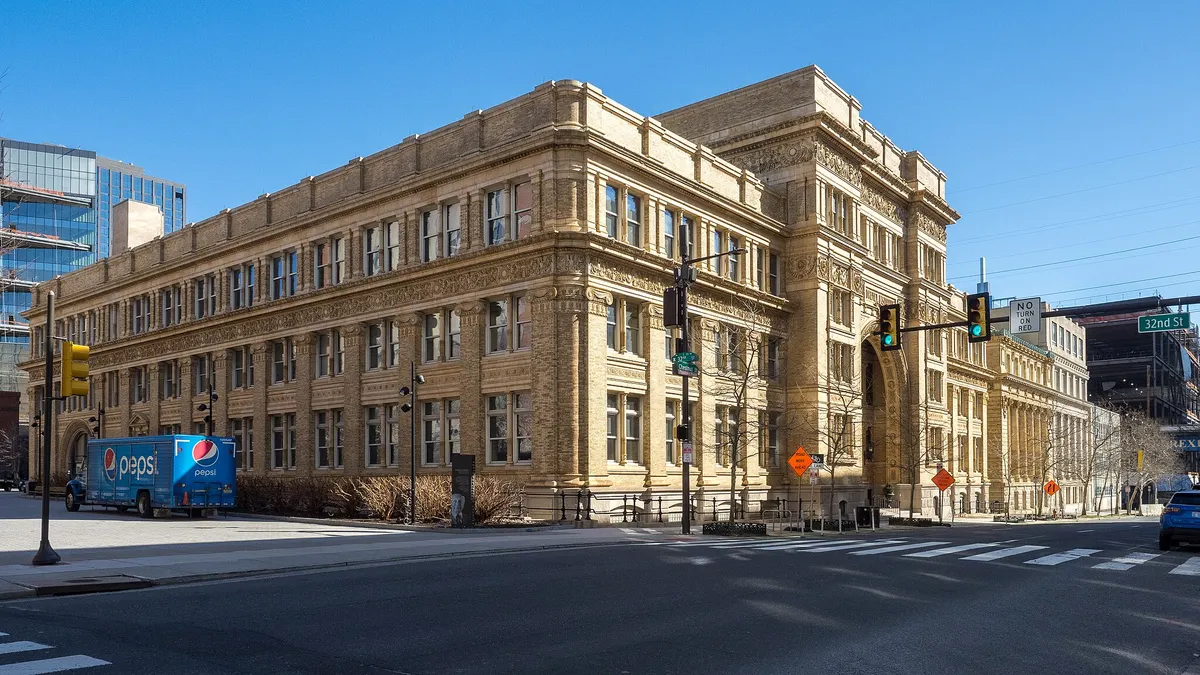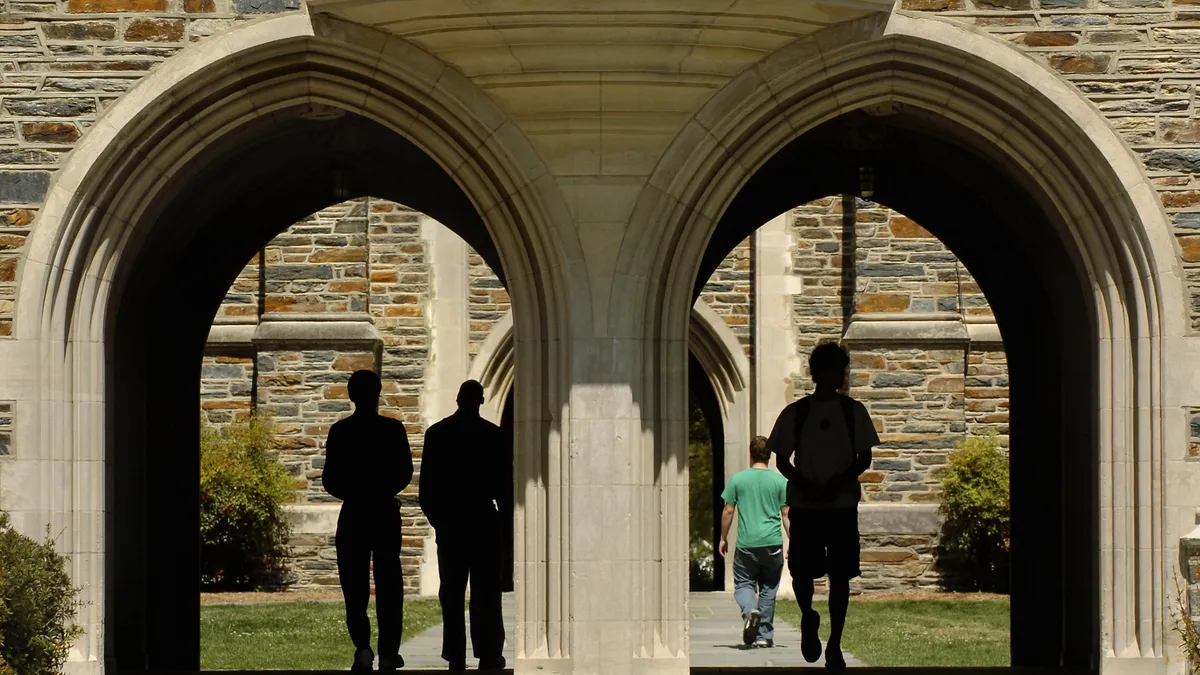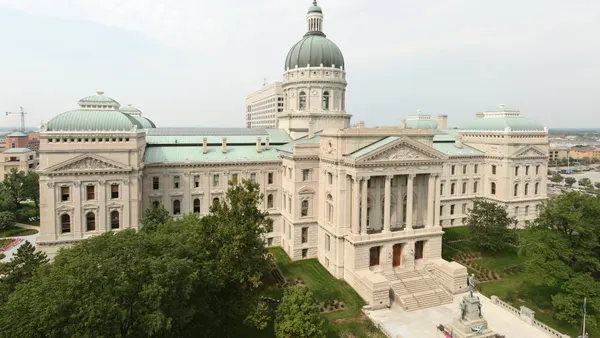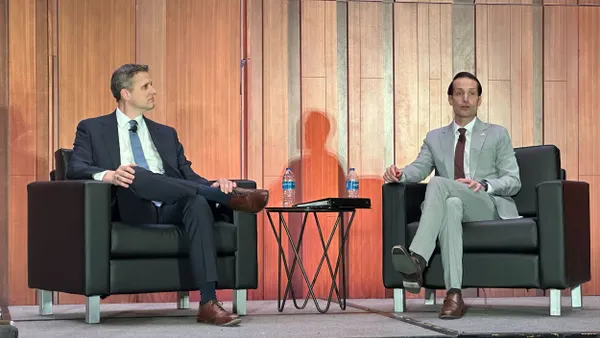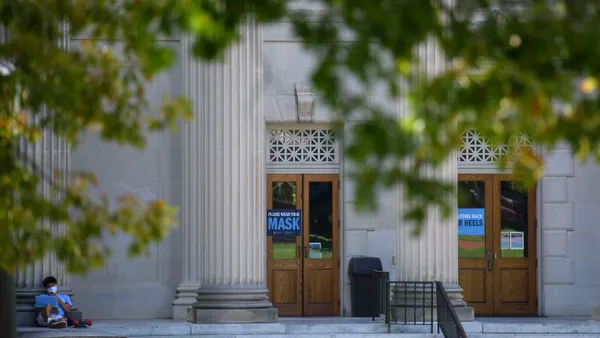Dive Brief:
- Saint Augustine’s University told the U.S. Department of Education that it wants to "participate in and help shape" the Trump administration's proposed compact that seeks to control a range of academic and operational policies in exchange for preferential access to federal funding.
- However, leaders from the historically Black institution caveated their support over concerns that aspects of the compact as written "risk unintended consequences that would impede our ability to serve students effectively."
- "Despite these concerns, Saint Augustine’s University remains eager to participate as a constructive partner and early-engagement institution," the leaders of the private North Carolina university said in a letter obtained by Fox News. They requested "a dialogue process" with the Education Department to facilitate "mission-sensitive accommodations" for HBCUs.
Dive Insight:
Last month, the Trump administration offered nine high-profile research colleges a deal — priority for federal grants in exchange for enacting a wide range of policies aligning with the president's higher education goals.
Some of the compact's terms, while unprecedented, are straightforward, such as freezing tuition rates for five years, requiring standardized testing for undergraduate applicants, and capping international students’ share of undergraduate enrollment at 15%.
Others go beyond cut-and-dry policy changes, such as publicly auditing the viewpoints of employees and students and potentially changing or ending campus units that purposefully “punish” or “belittle” conservative ideas.
Seven of the initially invited colleges rejected the deal, and, as of Thursday afternoon, the remaining two have yet to publicly accept or decline the offer.
But a few colleges have sought to take their place after President Donald Trump appeared to open the compact offer to all higher ed institutions.
Saint Augustine's letter makes it the third college — and the first HBCU — to publicly express interest in the bargain.
The New College of Florida — in a move in line with its conservative makeover under Florida Gov. Ron DeSantis — became the first college to publicly volunteer to sign the compact on Oct. 27. The following day, Valley Forge Military College offered to accept the deal as well, according to The Philadelphia Inquirer.
But unlike New College and the military college, Saint Augustine's did not give the proposed compact a full-throated endorsement.
Neither the Education Department nor the university responded to questions Thursday.
Verjanis Peoples, the university's newly appointed interim president, and Sophie Gibson, chair of its board of trustees, warned that the compact as written is "not compatible with the statutory mission and federal mandate under which HBCUs operate."
"Because our mission is not ornamental but foundational, we cannot implement requirements that would directly conflict with our identity as a Historically Black University or undermine our ability to serve the populations for whom we were created," they wrote in their letter, which Fox News reported as being sent to the Education Department on Wednesday.
Peoples and Gibson cited a handful of the compact's provisions, including one requiring signatories to not consider race, sex, religion and other characteristics “explicitly or implicitly” in admissions or financial aid.
The pair said the restriction, "while well intentioned," conflicts with Title III of the Higher Education Act, which in part provides colleges grant funding and establishes a program meant to strengthen HBCUs. The Trump administration's proposed deal would also run contrary to "the explicit purpose of HBCUs to expand access for Black students and historically marginalized communities," they said.
The compact said it would grant exceptions for religious and single-sex institutions to limit admissions based on religious belief and sex, respectively, but did not address HBCUs.
Other elements of the Trump administration's proposal could also hinder HBCUs, Peoples and Gibson said.
These colleges typically maintain smaller endowments and would have a difficult time absorbing the costs of a tuition freeze. A cap on international enrollment would disproportionately hit HBCUs, which have "global partnerships across the African diaspora," they said.
Saint Augustine's leaders also flagged a compact provision that would require colleges to adopt definitions of gender and sex in step with Trump's executive order saying the federal government would only recognize two sexes, male and female, that cannot be changed. These definitions have been rebuked by the scientific and medical communities.
HBCUs could face operational challenges if they adopt this language given their "inclusive campus policies shaped by both community needs and regulatory frameworks," the letter said.
"Such provisions would unintentionally force HBCUs to choose between compliance and survival, a position that is neither feasible nor consistent with congressional intent," Peoples and Gibson said.
Should the Trump administration take Saint Augustine’s up on its offer, the embattled university could gain a financial lifeline amidst ongoing operational turmoil.
In recent years, Saint Augustine’s has had its accreditation revoked, then reinstated, then revoked again. The university is operating as an accredited institution this fall because of a preliminary court injunction temporarily reversing the latest revocation.
The university's accreditor, Southern Association of Colleges and Schools Commission on Colleges, has raised concerns over its finances and governance.
Saint Augustine's has attempted different tactics to address its ongoing budget issues, including pursuing land lease deals, taking out loans and drastically cutting its workforce.


